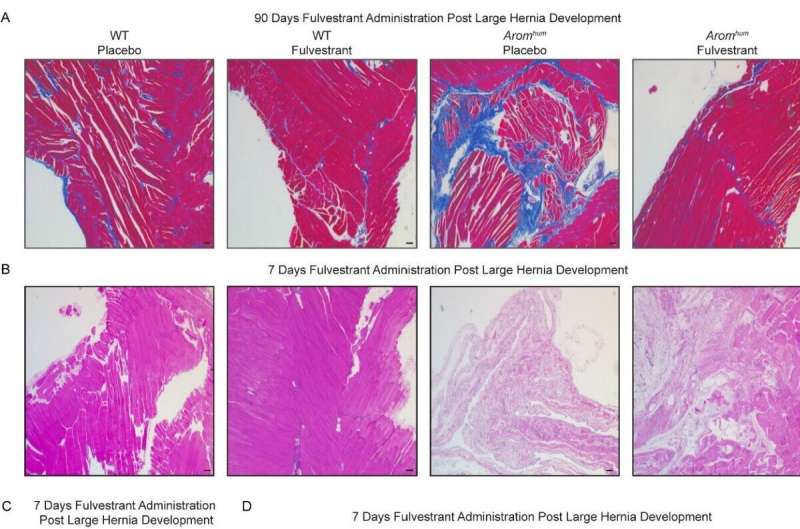Using a novel, medication-based approach, a new Northwestern Medicine study published in the Journal of Clinical Investigation successfully reversed existing inguinal hernias in male mice and fully restored their normal anatomy without surgery. Even more promising, the scientists also examined human hernia tissue and found the identical molecular markers as in the mouse model. More than a million inguinal hernia repair surgeries per year are performed under general anesthesia in the U.S.
“This is a blockbuster publication about the first medical treatment of inguinal hernias,” said senior author Serdar Bulun, MD, the chair and John J. Sciarra Professor of Obstetrics and Gynecology and a Northwestern Medicine physician.
“Our findings strongly suggest that men would also respond to this medication as the male mice did, so if male patients are high risk for surgery, we can one day try to repair the hernias medically.”

